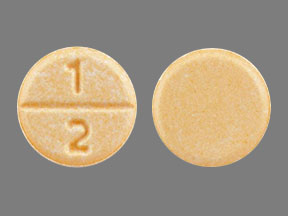
Clonazepam Coupons & Savings Card – Discount Prices from $3.26
Generic for: Klonopin
My prescription
Edit
0.5MG, Clonazepam (30 Tablets)
Select pharmacy

CVS
$18.93
COUPON PRICE
Walmart
$3.26
COUPON PRICE
Walgreens
$9.65
COUPON PRICE
Albertsons
$11.65
COUPON PRICEClonazepam savings card
Show this card to your pharmacist
Walmart
$3.26
BIN
ID
PCN
GRP
019876
LHDE996984
CHIPPO
LHX
Powered by
More prescriptions for panic disorder
More prescriptions for panic disorder
Price history for Klonopin (brand) & Clonazepam (generic)
30 Tablets, 0.5MG
Average retail price for Klonopin
Average retail price for Clonazepam
Average SaveHealth price for Clonazepam
Our price history data is based on aggregated prescription data collected from participating pharmacies in America. Our prescription data updates daily to reflect the latest price changes. If you notice a missing data point, it means there wasn't sufficient data available to generate a monetary value for that date.
We analyzed Clonazepam prices for (0.5MG, 30 Tablets) over the last 12 months. The average retail price was $25.17, while the average price using the SaveHealth discount card was $15.43. That's a savings of approximately 38.70% when using our Clonazepam coupon.
Compared to the generic version, Klonopin had an average price of $95.99 over the same time period. With the SaveHealth savings card, Clonazepam is 83.93% cheaper on average than Klonopin.
*Retail prices are based on pharmacy claims data, and may not be accurate when we don't have enough claims.
Clonazepam dosage forms
Dosage Quantity Price from Per unit 0.5MG 30 Tablets $3.26 $0.11 0.5MG 45 Tablets $3.64 $0.08 0.5MG 60 Tablets $4.02 $0.07 0.5MG 90 Tablets $11.29 $0.13 0.5MG 120 Tablets $12.05 $0.10 0.5MG 180 Tablets $18.89 $0.10 1MG 30 Tablets $3.46 $0.12 1MG 45 Tablets $3.94 $0.09 1MG 60 Tablets $4.42 $0.07 1MG 90 Tablets $11.89 $0.13
| Dosage | Quantity | Price from | Per unit |
|---|---|---|---|
| 0.5MG | 30 Tablets | $3.26 | $0.11 |
| 0.5MG | 45 Tablets | $3.64 | $0.08 |
| 0.5MG | 60 Tablets | $4.02 | $0.07 |
| 0.5MG | 90 Tablets | $11.29 | $0.13 |
| 0.5MG | 120 Tablets | $12.05 | $0.10 |
| 0.5MG | 180 Tablets | $18.89 | $0.10 |
| 1MG | 30 Tablets | $3.46 | $0.12 |
| 1MG | 45 Tablets | $3.94 | $0.09 |
| 1MG | 60 Tablets | $4.42 | $0.07 |
| 1MG | 90 Tablets | $11.89 | $0.13 |
| 1MG | 120 Tablets | $12.85 | $0.11 |
| 2MG | 10 Tablets | $2.91 | $0.29 |
| 2MG | 30 Tablets | $3.74 | $0.13 |
| 2MG | 45 Tablets | $4.36 | $0.10 |
| 2MG | 60 Tablets | $4.98 | $0.08 |
| 2MG | 90 Tablets | $12.72 | $0.14 |
| 2MG | 120 Tablets | $13.96 | $0.12 |
